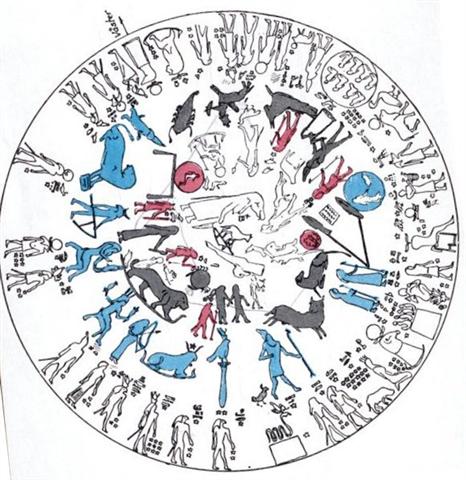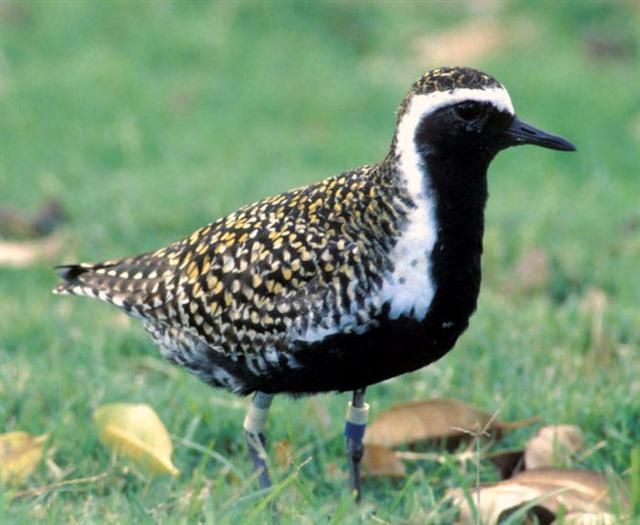8. It is easy to drown in all the details flooding over us, but we must swim on and keep to the surface. The overall design is clear: First there is an old 'land', then comes the 'sea', and then follows a new 'land'. With 'land' is here meant that part of the sky dome which at a certain time of the year is rising above what can be observed in winter. When 'land' cannot be orbserved it is the season of 'sea' (winter). In the round Dendera zodiac 'land' measures 12 periods and 'sea' only 4, or we can say that 'land' stretches for 3 quarters and the remaining quarter is 'sea':
A myth is useful at this point: There is a couple residing in one place named Kui and Fakataka. After the couple stay together for a while Fakataka is pregnant. So they go away because they wish to go to another place - they go. The canoe goes and goes, the wind roars, the sea churns, the canoe sinks. Kui expires while Fakataka swims. Fakataka swims and swims, reaching another land. She goes there and stays on the upraised reef in the freshwater pools on the reef, and there delivers her child, a boy child. She gives him the name Taetagaloa. When the baby is born a golden plover flies over and alights upon the reef. (Kua fanau lā te pepe kae lele mai te tuli oi tū mai i te papa). And so the woman thus names various parts of the child beginning with the name 'the plover' (tuli): neck (tuliulu), elbow (tulilima), knee (tulivae). They go inland at the land. The child nursed and tended grows up, is able to go and play. Each day he now goes off a bit further away, moving some distance away from the house, and then returns to their house. So it goes on and the child is fully grown and goes to play far away from the place where they live. He goes over to where some work is being done by a father and son. Likāvaka is the name of the father - a canoe-builder, while his son is Kuikava. Taetagaloa goes right over there and steps forward to the stern of the canoe saying - his words are these: 'The canoe is crooked.' (kalo ki ama). Instantly Likāvaka is enraged at the words of the child. Likāvaka says: 'Who the hell are you to come and tell me that the canoe is crooked?' Taetagaloa replies: 'Come and stand over here and see that the canoe is crooked.' Likāvaka goes over and stands right at the place Taetagaloa told him to at the stern of the canoe. Looking forward, Taetagaloa is right, the canoe is crooked. He slices through all the lashings of the canoe to straighten the timbers. He realigns the timbers. First he must again position the supports, then place the timbers correctly in them, but Kuikava the son of Likāvaka goes over and stands upon one support. His father Likāvaka rushes right over and strikes his son Kuikava with his adze. Thus Kuikava dies. Taetagaloa goes over at once and brings the son of Likāvaka, Kuikava, back to life. Then he again aligns the supports correctly and helps Likāvaka in building the canoe. Working working it is finished. (Ruth Finnegan & Margaret Orbell, South Pacific Oral Traditions.) Tae-tagaloa means 'not (ta'e) Tagaroa, i.e. we can understand the strange name of the child as 'land', because Tagaroa refers to the sea. His father 'expires' before reaching the new land, but his mother 'swims and swims' and survives the sea. On the freshwater reef (a horizontal flat season) she is giving birth to her man again. Because her man is Sun and her Son is Sun and his living spirit (manu rere) reappears as a golden plover in order to reincarnate himself in the body of the newborn baby boy.
|

